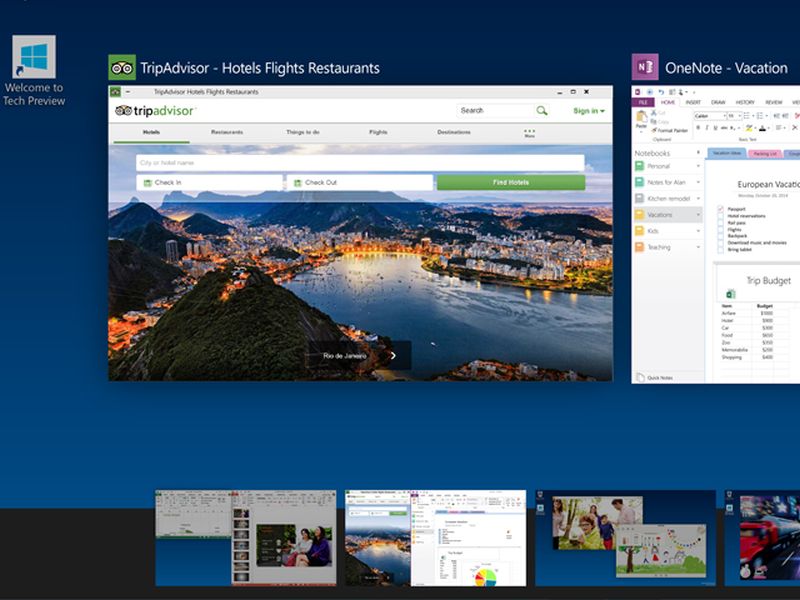Deleted Microsoft blog post claims Windows 10 to support desktop apps and more in Windows Store

All the latest news, reviews, and guides for Windows and Xbox diehards.
You are now subscribed
Your newsletter sign-up was successful
A blog post from a Microsoft employee that was later deleted this week seems to confirm that the Windows Store in Windows 10 will include many more features, including direct purchase and download access to traditional desktop applications (x86/x64) and more types of content besides just Modern apps.
The blog post was written by Oliver Niehus, who works on the Windows team as a principal application development manager. His blog post went live on Wednesday but was removed on Thursday. It's possible Niehus jumped the gun and revealed details about future Windows 10 features before Microsoft was ready to talk about them officially. However, a cached version of the post is available to read via Google.
In his post, Niehus wrote:
"The Windows Store will also support more than just modern apps. It will add desktop apps, as well as other types of digital content. We will provide many different ways to pay for apps. And we'll provide an organization store within the public Windows Store, where an org can place their own curated list of public apps as well as specific line-of-business apps that their employees need."
While the Windows Store in Windows 8 and 8.1 can list traditional desktop apps like Photoshop (as opposed to Photoshop Express), the storefront does not offer a way to directly purchase and download those apps from the storefront. Instead, clicking on them takes the user to a third party website for download. As far as "other types of digital content", it's more than possible that the Windows Store in Windows 10 could offer direct download links to movies, TV shows, music and books, but that is sheer speculation at this point.
Niehus also stated that there will be other ways to pay for apps in the Windows Store. Specifically, he wrote:
"Through the new Volume Purchase Program, we'll provide the ability to acquire apps for the organization, paid for using a purchase order, invoice, or credit card. We'll provide license management for those apps, enabling organizations to reclaim and reuse licenses (e.g. when an employee leaves the company). You will be able to deploy apps in a variety of ways: Download the installation files and put them in your custom images or deploy them using your existing management infrastructure. Send an e-mail link to a remote user. Install apps even when not connected to the internet."
It's important to point out that these features are not in the current Windows 10 Technical Preview but will likely be added in future preview builds before the final version is release sometime in 2015. What do you think of Microsoft's plans to expand the Windows Store?
Source: Oliver's blog (cached on Google) via Computerworld
All the latest news, reviews, and guides for Windows and Xbox diehards.

John Callaham was a former contributor for Windows Central, covering Windows Phone, Surface, gaming, and more.
